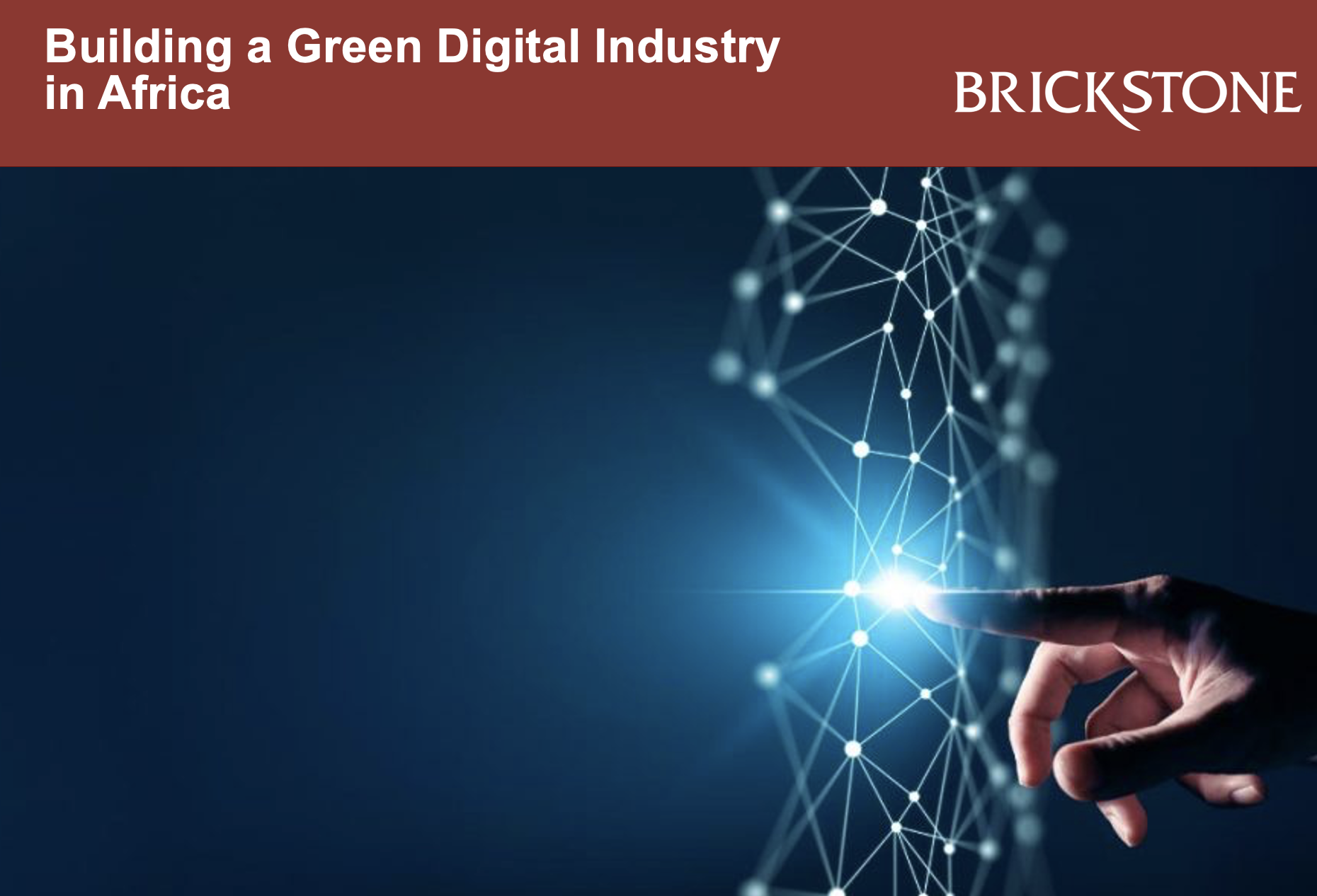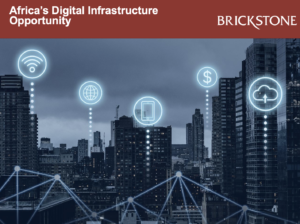Building a Green Digital Industry in Africa
Today, in the light of the pressing climate crisis we are all confronted with, the industrialized nations of the world are rethinking their growth model. This is where Africa has a major advantage. Its strength lies in its ability to harness cutting-edge solutions to advance its industrialization process while coupled with climatic and environmental requirements.
Rather than embarking on major projects to modernize obsolete infrastructure, African countries can directly integrate advanced technologies, thereby improving their competitiveness and productivity. Africa has the opportunity to design intelligent, connected and sustainable production systems from the outset, drawing on the experience of industrialized countries.
This article by Brickstone reviews Africa CEO Forum’s publication on building a green digital industry in Africa, highlighting key facts and insights.
Green Digital Industry in Africa
The fourth industrial revolution presents Africa with an invaluable opportunity to accelerate its industrialization objectives.
Advances in the Internet of Things, artificial intelligence, automation and robotics mean that Africa can develop innovative, efficient industries geared to today’s needs, while at the same time contributing to achieving global climate targets that are currently challenging Western development models, given that they are mainly based on fossil energy sources such as coal and oil.
Africa’s potential for producing energy from renewable sources is immense. When combined with innovative solutions using cutting-edge technologies like artificial intelligence, the entire value chain benefits from greater efficiency, while significantly reducing carbon emissions.
Productivity and efficiency gains at every stage of the value chain have considerable positive repercussions on the entire economies of African countries. The need for industrialization and economic growth is just as much a priority for the continent and must be coupled with policies and initiatives to protect the environment.
On this path towards a dynamic, sustainable economy, I see 4 major levers: improving energy efficiency; increasing the share of renewable energies in electricity production; developing green and low-carbon industries; and building a consensus to open up a new development path.
Today, many solutions and alternatives exist to meet this challenge. One example is installing smart-grids for energy management and distribution to help decarbonize network sites. Huawei’s Advanced Hybrid Power solution, which incorporates a hybrid solar system equipped with a storage system managed exclusively by artificial intelligence, makes it possible to adapt distribution to the demands of the grid tower.
Another example I’d like to point out is in Egypt. Together with our partner Telecom Egypt, we have deployed a solution that is a first for Africa – an ecological network tower, powered by solar energy to operate the main electricity network.
This is a major step towards decarbonizing the telecoms industry and, as a key player on the continent, we are particularly proud to be contributing to it.
During the panel discussion “Unleash Digital for a sustainable and inclusive Africa” hosted by Huawei at the Africa CEO Forum on June 5th, His Excellency Mr. Amadou Coulibaly, Côte d’Ivoire’s Minister for Communication and the Digital Economy and Government Spokesman, rightly pointed out that “coal was the energy that accelerated the industrial revolution in Europe in the last century, and today digital is the energy that is propelling Africa towards its industrial revolution”.
Digitalization and widespread adoption of Information and Communication Technologies (ICTs) will enable Africa to design an innovative industrial development model that is environmentally friendly and geared to the realities of the 21st century. A development model “made in Africa for Africa”.
Learn more about Green Digital Industry in Africa here.






